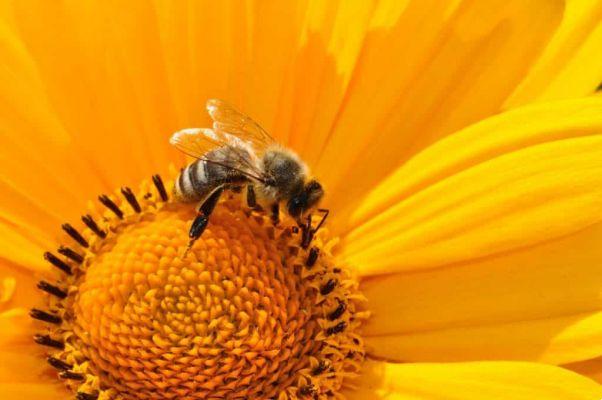When enjoying a soft drink or candy, when picking flowers or cultivating a vegetable garden or even walking down the street, it is possible to find bees. Although there are thousands of species, the most common in Spain are African. They are those insects with yellow and black stripes, with stingers and wings. Although they cause fear and allergy in some people, bees are responsible for pollinating flora all over the world.
The pollination process is the way to obtain food for bees, but for ecosystems, it represents much more than that. It is the pollen from flowers, fruits, grains and vegetables that allows plants to reproduce. Bees carry out the dispersion of reproductive particles and are able to renew the cycle of large plantations.
Without the action of bees, the reproduction of 80% of the flora would be compromised. As are the plants that serve as food for people and animals, in time both would be extinct. This concern began to develop when scientists and biologists identified that bees are at serious risk of extinction.

The reasons for the disappearance of bees are the increasing use of pesticides and pesticides in crops, harmful to these insects, and the way of creating apiaries. According to what science determines, bee breeding centers must have a distance of 800 meters between each species. However, this rule is not put into practice. An example of this is the action taken by Spain in relation to the bees they raise. Spanish beekeepers have been taking beehives with bees to the forests that border Portugal. Thus, the species created by Portuguese beekeepers compete with those created by the Spaniards, making it difficult to control and develop production.
In addition to being intoxicated by chemicals released in crops, bees compete with each other for being from different hives and species. Pollination is impaired and, consequently, the reproductive process of the flora does not take place. On the other hand, some nations of the world are willing to stop this cycle of extinction.
You may also like
- Be amazed by the story of the bee charmer
- Learn about the impacts of the absence of bees on the environment
- Understand why animals can go through a process of extinction
France was the first country to ban five pesticides, called neonicotinoids, that cause bee deaths. In London, England, an eleven kilometer long flower corridor will be created, so that the bees can put into practice the activity they have always carried out.
These initiatives can reverse the bee extinction scenario, but other efforts are still needed to solve this problem. International commitment to this cause is necessary so that food production around the world does not need to depend on a laboratory. Saving the bees is the only prospect for the world's food to be based on the products that the earth provides.

























